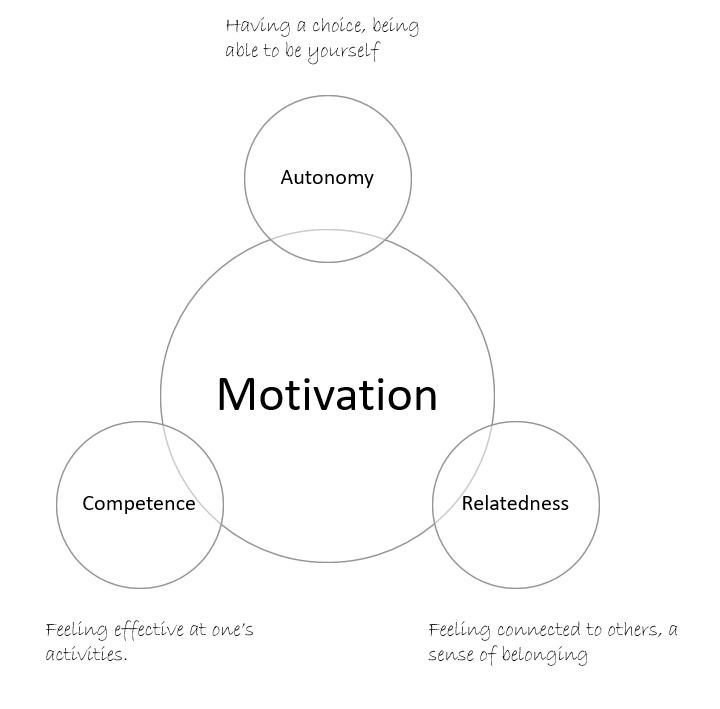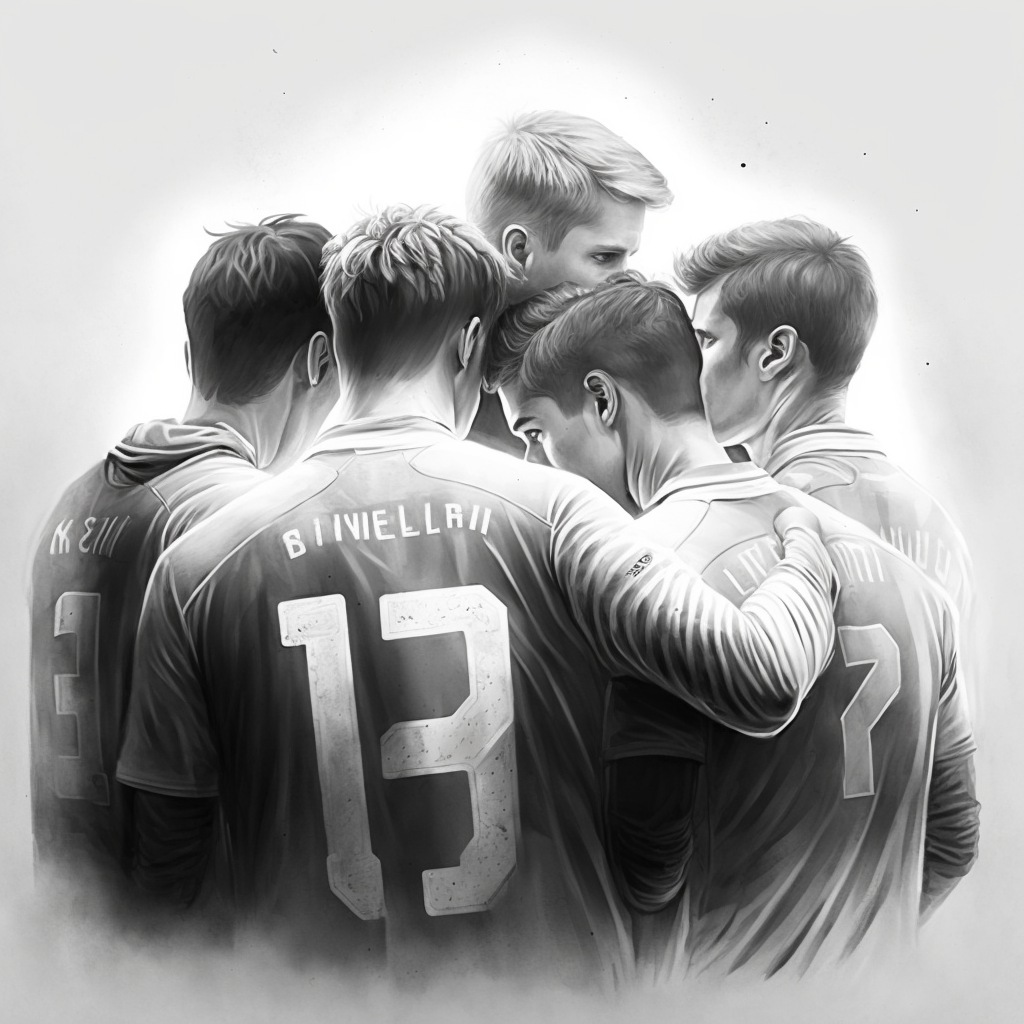
Can you feel it?
The sense of wonder and curiosity you had as a child?
When the world was an endless playground waiting to be explored and the only thing holding you back was the sunset creeping closer to the horizon?
Do you remember when you were a child?
Back then, you didn’t need anyone to tell you to go outside to play. Riding your bike for hours on end was just another way to satisfy your insatiable desire for adventure and fun.
But as we grow up, something changes…
Our motivations become clouded by external pressures and expectations.
We start chasing after external rewards, whether its money, fame or approval from the Joneses.
And in doing so…
We forget the joy and fulfillment that comes from pursuing activities for their own sake.
But it doesn’t have to be this way.
We can tap into the intrinsic motivation again, that pure and unadulterated drive to seek out fun and excitement.
All we have to do is let go of our adult inhibitions and embrace the playful, curious spirit of our inner child.
So let’s strap on our shin guards, pull up our socks and rediscover the magic that lies waiting just beyond our front door and within our children.
What is Soccer Motivation?
Soccer motivation refers to the drive, hunger and desire that propels a soccer player to play the game and pursue their goals in the sport.
As most parents would agree, motivation in soccer is important because it influences performance, attitude and their attendance.
It’s the vital ingredient that keeps them turning up to training every week.
…even when it’s raining, freezing and cold.

Different Types of Soccer Motivation
Let’s start with the most important type of motivation.
The word “intrinsic” comes from the Latin word “intrinsecus” meaning from “within” or “on the inside”.
Intrinsic motivation comes from within.
It manifests from a desire to play the game for the enjoyment and pleasure that comes from playing soccer.
It doesn’t require external rewards, pressure, guilt or recognition to play.
The sweat, hard knocks and the competition to improve are seen as the motivating rewards.
Extrinsic motivation sits on the opposite side of the spectrum.
The word “extrinsic” comes from the Latin word “extrinsecus” meaning “on the outside”.
Extrinsically motivated children play the game because of external incentives or pressures rather than personal enjoyment or challenge.
5 Different types of Extrinsic Soccer Motivation
External Regulation- This type of motivation comes from external sources such as rewards, punishment or social pressure.
Rewards
Offering a reward for attending soccer training is a classic example of external regulation.
“If you go to training, I will buy you new shin pads.”
“If you go to training, I will take you to McDonalds.”
The child’s motivation to play soccer is driven by the desire to receive gifts rather than playing soccer.
Punishment
Another example of external regulation is when the parents or coaches threaten punishment. This type of motivation is driven by the fear of consequences rather than enjoyment.
“If you do not go to training, I will ban you from the PlayStation”.
“If you do not go to training, the coach will not play you.”

Verbal Praise
While verbal praise can be a positive form of external regulation, it can also have negative consequences if used inappropriately.
“Great win today”- If a child is constantly praised for victories, it can lead to an overemphasis on the outcome of the game rather than the process. What happens to your child when they lose?
“Good job out there today!”- Can be meaningless and fail to provide any specific feedback to the child. This could be demotivating when your child is seeking specific feedback for improvements. “Good job” could also be perceived as, “I was too busy on the phone to notice specifics”.
“Great job on scoring that goal. I’m so proud of you. Keep it up and you might make it to the Premier League”- Conditional praising is the greatest way to destroy your child’s motivation. In this scenario the parent is only praising the child when certain expectations or conditions are met. Conditional praising is the easiest way to install the fear of failure in your child.
Introjected Regulation- This type of motivation comes from internal pressure such as guilt and shame.
“If you don’t train more and try harder in games, you’ll let the team down and they won’t win. You don’t want to be the reason we lose, do you?”
Identified Regulation- This type of motivation comes from recognising the value or importance of an activity and choosing to engage in it voluntarily.
“I know you may not feel like going to soccer training tonight but remember how much you love being part of the team and the skills you’ve learned so far. If you keep training, you’ll become an even better soccer player and have more fun in games.”
This type of motivation offers more engagement, persistence and satisfaction in training as your child feels a sense of autonomy and control over their choices.
Integrated Regulation- This type of motivation comes from fully integrating the game into one’s sense of self and identity.
“Soccer is not something I do, it’s part of who I am. I love the sport. I am a soccer player!” Integrated regulation is why so many players after they retire fall into a spiral of depression.
Social Motivation- This type of motivation comes from the desire to connect with and please others.
“I know you don’t like soccer, but your friends from school are on the team and they really enjoy playing with you”.
The Importance of Soccer Motivation
As we delve deeper into the topic of soccer motivation and learn to distinguish between the various types of motivation, it’s time to shift our attention towards the importance and benefits.
Improved Performance
Motivated players are more likely to perform at their best. They are energised from within and look forward to training and practice.
Training and repetition lead to better skills, better decision-making and overall, a better experience for all (player-parent-coach).
When a players motivation is nurtured and protected, the improvements in performance are exponential compared to a player who is imprisoned by fear or guilt.

Resilience
Motivated soccer players exude resilience and continue to bounce back stronger after defeats.
They manage setbacks and continue to persevere in the face of adversity. The power is within and no matter what happens around them, it cannot be taken away.
These are the players that get thrown to the ground by bigger-stronger players and quickly get up, dust themselves off and continue to play through grit teeth.
They are not in search for the next McHappy meal.
Enjoyment
When players are motivated, they are eager to play and practice. The enjoyment and fulfilment come from putting on their training kit and playing the game.
Through having fun, they foster a positive attitude and are eager to improve and learn. This mindset and attitude spills over to other parts of their lives and becomes empowering and contagious.
Personal Growth
By default, motivated players have a positive impact on the team and set the example for what’s needed to succeed. They start to display important life skills such as goal setting, commitment and self-discipline.
They continue to challenge themselves and view challenges and defeat as a learning opportunity.
Builds Self-Confidence
Whilst motivation helps you attend training, survive the setbacks and defeats, it also helps you envision a future full of improvements.
If you commit to attending training, the improvements will occur naturally.
This is one of the greatest virtues of motivation.
Through this process of pursuing a future state and pushing through challenging times, you start to build character and self-confidence.

How to motivate Soccer Players
I’m only in it for the money.
If you reward your children for playing soccer, they will usually turn up…even against their will.
But is this the most effective method for soccer motivation?
Deep down you know the answer to this…
Most psychologists who challenge traditional thinking have proven that this method doesn’t work. It actually harms performance, enjoyment and ultimately has the opposite effect.
The best way to motivate our children is to support their sense of autonomy.
No need to scratch your head…
Autonomy in reference to motivation refers to an individual’s sense of control over their own behaviour, goals and choices.
When children feel that they have the freedom and authority to make choices and take actions that align with their values and interests, they are more likely to be intrinsically motivated to pursue soccer.
Young children with an interest in soccer do not want to feel controlled, rewarded or even pressured to play the game. The removal of autonomy inevitably leads to a reduction in intrinsic motivation and relies on rewards or punishment to drive behaviours.
So instead of asking,
“How can I motivate my children?” we should be asking,
“How can I create the conditions within which children will motivate themselves?”
The Motivation Model
We’ve established that intrinsic motivation is the key when it comes to kids soccer.
It’s what pushes us to chase OUR goals and strive for improvements.
The easiest way to harness motivation in our children is to subscribe to a motivational model called the “Self-Determination theory”.

This theory breaks down motivation into three fundamental psychological needs.
- Autonomy
- Competence
- Relatedness
As described above, autonomy means having control over our lives and choice in what we do.
Competence is feeling confident and capable in our actions.
Relatedness is all about feeling connected to others and being part of the team.
When the three needs of the Self-Determination theory are met, our kids will experience and develop intrinsic motivation.
This means they are driven by their own interests and enjoyment, rather than external rewards or punishment.
By understanding this model (Autonomy- Competency- Relatedness) we can create an environment that encourages intrinsic motivation in our young children.
It doesn’t have to be difficult…
By fostering autonomy, promoting opportunities for training (competence building) and emphasising the importance of belonging to a team, we can help our kids stay motivated to play the game and develop their soccer skill.

10 Strategies to Motivate Young Soccer Players
- Foster autonomy by giving your children a sense of control and choice over their training and involvement.
- Create an environment that emphasises relatedness, where your children feel connected to their team and have a sense of belonging.
- Provide opportunities for competence-building by setting achievable goals and celebrating progress and improvements.
- Use positive reinforcement and praise effort.
- Encourage intrinsic motivation by helping your kids find joy in soccer and their own development.
- Avoid using punishment or negative feedback as this can lead to extrinsic motivation and decreased interest in soccer.
- Focus on the process, not the outcome, emphasising the importance of effort, hard work and discipline.
- Set clear expectations together and continue to communicate those milestones to build trust and foster a sense of accountability.
- Use visualisation techniques and positive self-talk to help your child build confidence.
- Finally, make sure to create a fun and engaging environment that keeps them interested and entertained. This includes the road trip to and from the soccer grounds.
- Bonus strategy, read inspiring and motivational quotes to fuel the internal fire.
Soccer Motivational Quotes
“Success is no accident. It is hard work, perseverance, learning, studying, sacrifice and most of all, love of what you are doing or learning to do.” -Pele
“It’s hard to beat someone who never quits.”- Unknown.
“We didn’t lose the game; we just ran out of time.”– Vince Lombardi.
“Play is the highest form of research.” –Albert Einstein.
“It’s not whether you get knocked down; it’s whether you get up.”–Vince Lombardi
“Everything is practice”- Pele
“You don’t inspire your teammates by showing them how amazing you are. You inspire them by showing them how amazing they are.”- Robyn Benincasa
“The vision of a champion is someone who is bent over, drenched in sweat and at the point of exhaustion when no one else is watching.”- Anson Dorrance
“Talent is just the starting point.”- Unknown
“Believe you can and you’re halfway there.”- Theodore Roosevelt
Conclusion
Thank you!
You’ve made it to the end of the post.
You must be really committed to helping your child succeed in soccer.
By implementing these simple strategies, you can ignite your child’s passion for soccer, boost their confidence, give them the drive they need and most importantly, show them that you love them.
But here’s the thing- it’s not going to be easy.
Creating the environment to motivate your child takes effort, dedication and a willingness to try new things. It also involves breaking the ”old-school” thinking and behaviours passed onto us by our parents.
So instead of asking,
“How can I motivate my children?” you should be asking,
“How can I create the conditions within which children will motivate themselves?”
“May the winds of destiny blow you to the stars”

Frequently Asked Questions
How to motivate a soccer player?
To motivate a soccer player, it is important to foster a sense of autonomy, competence, and relatedness, while also encouraging intrinsic motivation. By applying the principles of the self-determination theory, coaches and parents can help players develop a love for the sport and a desire to continually improve and grow as soccer players.
How do soccer players stay motivated?
Soccer players stay motivated through a combination of intrinsic and extrinsic factors, including setting goals, positive feedback, enjoyment of the game, personal improvement, team success, and external rewards. By focusing on these factors, soccer players can stay motivated and continue to develop their skills and love for the game.
How do you motivate a soccer player after a loss?
To motivate a soccer player after a loss, acknowledge their feelings, provide constructive feedback, reframe the loss as an opportunity to learn and grow, focus on the process, encourage autonomy, and promote relatedness. By applying these strategies, coaches and parents can help players develop resilience, motivation, and a growth mindset, which are critical for success in soccer and in life.
How to motivate players before a game?
To motivate players before a game, set goals, provide positive feedback, encourage autonomy, foster relatedness, use imagery and visualization, and create a positive atmosphere. By applying these strategies, coaches and parents can help players feel motivated and prepared for the game, leading to better performance and enjoyment of the sport.
How to motivate a soccer player that has lost confidence?
It’s important to be patient and understanding when working with a player who has lost confidence. With the right support and motivation, they can regain their confidence and become a stronger player.



Leave a Reply